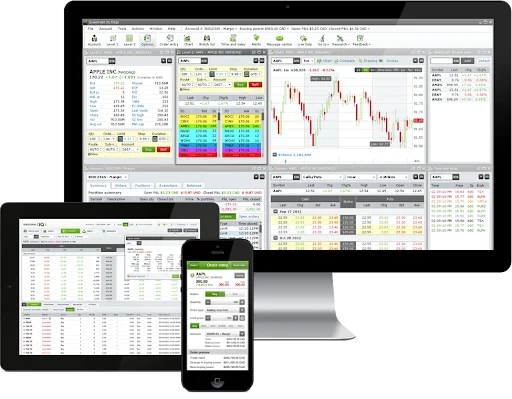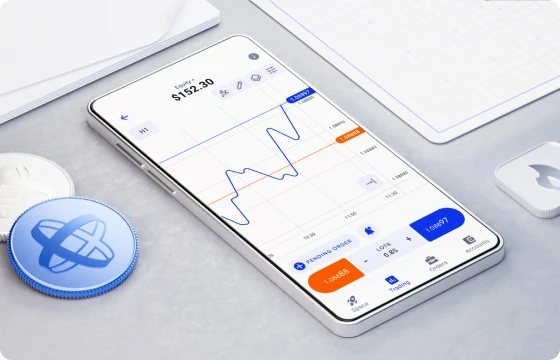What Are Low Spread Brokers?
A spread is the difference between the bid and ask price of a trading instrument. It represents the broker’s fee for executing a trade. Brokers with low spreads minimize this cost, making trading cheaper and more efficient.
Such brokers are particularly attractive to scalpers, day traders, and algorithmic traders who rely on frequent transactions. Low spreads also reduce slippage and improve trade entry accuracy.
Below is a brief comparison showing how spreads affect trade costs:
| Spread Type | Typical Range (EUR/USD) | Suitable for |
| Low Spread | 0.0 – 0.5 pips | Scalpers, intraday traders |
| Medium Spread | 0.6 – 1.5 pips | Swing traders, moderate activity |
| High Spread | 1.6+ pips | Beginners, low-frequency traders |
Brokers achieve tighter spreads by connecting clients to liquidity providers through ECN or STP models, avoiding markups. However, traders should still consider commissions and account fees to assess total trading costs.
Trading Platforms Supporting Low Spread Brokers
Modern trading platforms play an important role in maintaining efficient execution and accurate pricing. Some platforms are particularly known for handling low spread accounts effectively, offering advanced tools and stability during high market volatility.
MetaTrader 4 (MT4)
MT4 remains one of the most trusted platforms for forex and CFD trading. It supports direct access to brokers with raw spreads, offers customizable charts, automated trading via Expert Advisors (EAs), and stable performance even with multiple open positions. Its simplicity makes it ideal for both beginners and experienced traders.
Key Advantages:
- Fast order execution
- Extensive library of custom indicators
- Broad broker compatibility
MetaTrader 5 (MT5)
MT5 expands the MT4 framework by offering more asset classes, improved depth of market visibility, and faster processing speeds. It’s designed for multi-asset trading and supports hedging and netting modes. MT5 is often paired with low spread brokers that target professional or algorithmic traders.
Why traders prefer MT5:
- Supports additional instruments like stocks and futures
- Optimized algorithmic trading environment
- Detailed performance analysis tools
cTrader
cTrader is widely used by ECN brokers offering ultra-low spreads and direct market access. It features one-click trading, advanced order management, and transparent pricing through its depth of market display. Many scalpers favor cTrader due to its minimal latency and rich analytics.
| Platform | Execution Type | Strengths |
|---|---|---|
| cTrader | ECN | Direct market access, fast order speed |
| MT4 | STP | Simplicity, proven reliability |
| MT5 | ECN/STP | Broader asset coverage, high-speed trading |
Best Low Spread Brokers in 2026
The following section lists some of the top-performing low spread brokers in 2026, based on trading conditions, regulation, and platform performance. These brokers consistently offer tight spreads, robust infrastructure, and strong market reputations.
| Commision | Instruments | Min Dep | Leverage | Platforms | ||
|---|---|---|---|---|---|---|
| Low commission on Raw Spread accounts | Forex Commodities Indices Crypto | $200 | Up to 1:500 | MT4 MT5 cTrader | ||
| No commission, spreads from 0.0 pips | Forex Commodities Indices Crypto | $200 | Up to 1:500 | MT4 MT5 cTrader | ||
| From 0.0 pips (ECN) | Forex Crypto Indices | $100 | 1:500 | MT4 MT5 cTrader | ||
| Low commission, spreads from 0.0 pips | Forex Commodities Indices | $100 | Up to 1:500 | MT4 | ||
| No commission, spreads from 0.1 pips | Forex Commodities Indices Crypto | $10 | Up to 1:2000 | MT4 MT5 | ||
| No commission, spreads from 0.6 pips | Forex Stocks Commodities Indices | $5 | Up to 1:1000 | MT4 MT5 |
IC Markets
IC Markets
IC Markets is known for its raw spread accounts that start from 0.0 pips. The broker provides access to deep liquidity and maintains average execution speeds under 40ms. Traders can use MT4, MT5, or cTrader, ensuring flexibility across strategies.
Key points:
- Regulated by ASIC and CySEC
- Low commissions (around $3.50 per lot per side)
- Suitable for scalping and algorithmic trading
Pepperstone
Pepperstone
Pepperstone remains one of the most recognized names among low spread brokers. It offers Razor accounts with spreads from 0.0 pips and competitive commissions. The broker integrates MT4, MT5, and cTrader with superior connectivity to liquidity providers.
Features:
- Average EUR/USD spread: 0.1 pips
- FCA and ASIC regulated
- VPS hosting for algorithmic strategies
FP Markets
FP Markets
FP Markets is widely regarded for its ECN pricing and consistent spread stability, even during volatile sessions. It connects traders to deep liquidity pools, allowing real market quotes and minimal slippage. Spreads for major pairs often start from 0.0 pips, depending on market activity.
Main specifications:
| Account Type | Average EUR/USD Spread | Commission | Platform |
| Raw ECN | 0.1 pips | $3 per side | MT4, MT5 |
| Standard | 1.0 pips | None | MT4, MT5 |
FP Markets supports both manual and automated trading, with high execution reliability and competitive swap rates. Its regulatory oversight from ASIC and CySEC adds trustworthiness for global traders.
Tickmill
Tickmill
Tickmill is another broker recognized for tight spreads and low trading costs. It operates under strict financial regulations, offering direct market access through its Pro and VIP accounts. Traders benefit from fast execution, high leverage, and a transparent fee structure.
Highlights:
- Minimum spread: 0.0 pips on EUR/USD
- Average execution time below 40 milliseconds
- FCA, FSCA, and FSA regulated
Tickmill’s simplicity makes it a preferred choice for professional traders who prioritize performance over extra features.
FXTM
FXTM
FXTM (ForexTime) offers variable and floating spreads starting from 0.1 pips. It combines fast order execution with various account types suitable for different strategies. The brand is known for educational content and reliable performance under strong regulation from FCA, CySEC, and FSCA.
| Account | Minimum Spread | Commission | Best For |
| Advantage | 0.0 pips | $0.4–$2 per lot | Scalpers |
| Advantage Plus | 0.2 pips | None | Active traders |
FXTM maintains stability during high market activity and ensures consistent execution for both forex and CFD instruments.
XM
XM
XM continues to attract traders with its low-cost structure and strong regulation by ASIC, CySEC, and IFSC. Spreads on its Ultra-Low accounts begin from 0.6 pips without hidden fees or requotes. It’s also one of the few brokers combining tight spreads with flexible trade sizes and reliable MT4/MT5 access.
Key benefits:
- Execution with no re-quotes
- Negative balance protection
- Wide asset selection (Forex, Indices, Commodities, Stocks, Crypto CFDs)
What Affects Broker Spreads?
Broker spreads vary depending on several dynamic factors. Understanding these helps traders identify when conditions are most favorable:
- Liquidity: Higher liquidity during major market sessions (e.g., London or New York) often results in tighter spreads.
- Volatility: Spreads can widen during news releases or unstable markets.
- Broker model: ECN and STP brokers usually offer raw spreads, while market makers may apply markups.
- Trading volume: High-volume accounts can receive preferential spreads.
- Instrument type: Exotic pairs or less-traded assets generally have wider spreads due to lower liquidity.

How to Choose a Low Spread Broker
Selecting a broker with genuinely low spreads involves checking more than just advertised rates. The best approach combines technical evaluation with regulatory and operational analysis.

Regulation and Licensing
A trustworthy broker must operate under recognized financial authorities such as ASIC, FCA, CySEC, or FSCA. Regulation ensures transparency in pricing and protection against manipulation. It’s advisable to verify licenses directly on official regulator websites before depositing funds.
Example of reputable regulators:
- Australian Securities and Investments Commission (ASIC)
- Financial Conduct Authority (FCA)
- Cyprus Securities and Exchange Commission (CySEC)
- Financial Sector Conduct Authority (FSCA)
Trading Conditions and Execution
Even a broker advertising 0.0 pip spreads might not be suitable if slippage or latency occurs. Execution speed, uptime stability, and access to liquidity providers all influence trade performance. Some brokers also use Virtual Private Servers (VPS) to minimize delays for automated strategies.
Traders should test execution quality with demo accounts before switching to real trading.
Account Types and Commissions
Low spread accounts often include a small commission per trade, while standard accounts integrate costs into the spread. Understanding the difference between these structures helps calculate real trading expenses.
| Account Model | Spread | Commission | Suitable For |
| Raw/ECN | 0.0–0.2 pips | $3–$7 per lot | Scalpers, EA users |
| Standard | 1.0–1.5 pips | None | Beginners, swing traders |
Choosing the right combination depends on trading frequency, volume, and strategy type.
Frequently Asked Questions
What is considered a low spread in forex trading?
A spread below 0.5 pips on major currency pairs is generally seen as low, especially for brokers offering ECN execution.





